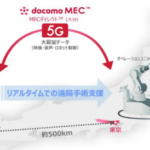超加工食品を多く摂取することは、がんの発症や死亡のリスク上昇につながる可能性があることが、インペリアル大学が主導した研究で示唆された。 Higher consumption of ultra-processed foods may be linked to an increased risk of developing and dying from cancer, an Imperial-led study suggests.
2023-02-01 インペリアル・カレッジ・ロンドン(ICL)
◆超加工食品は、比較的安価で、便利で、健康的な食品として販売されていることが多い。しかし、これらの食品は一般的に塩分、脂肪分、糖分が高く、人工添加物も含まれています。これらの食品は、肥満、2型糖尿病、心血管疾患など、さまざまな健康被害と関連していることが、現在では十分に立証されています。
◆英国初のこの種の研究は、UKバイオバンクの記録を用いて、20万人の中年成人参加者の食事に関する情報を収集したものです。研究者たちは、10年間にわたって参加者の健康をモニターし、34種類のがんの発症リスクだけでなく、あらゆるがんの発症リスクも調べました。彼らはまた、癌で死亡する人々のリスクを調べた。
◆その結果、超加工食品の摂取が多いほど、がん全体、特に卵巣がんと脳腫瘍の発症リスクが高いことがわかりました。また、がんによる死亡リスクも高く、特に卵巣がんと乳がんに関連することがわかりました。
◆食事中の超加工食品が10%増えるごとに、がん全体の発生率が2%増加し、特に卵巣がんでは19%増加しました。超加工食品の消費量が10%増加するごとに、がん全体の死亡率が6%増加し、乳がんで16%、卵巣がんで30%増加しました。これらの関連は、喫煙状況、身体活動、肥満度(BMI)など、社会経済的、行動的、食事的な様々な要因で調整した後も残っていました。
◆インペリアル大学の研究チームは、国際がん研究機関(IARC)、サンパウロ大学、リスボンNOVA大学の研究者と共同で、この研究を実施し、eClinicalMedicineに掲載された。
<関連情報>
- https://www.imperial.ac.uk/news/242892/ultra-processed-foods-linked-increased-risk-cancer/
- https://www.thelancet.com/journals/eclinm/article/PIIS2589-5370(23)00017-2/fulltext
超加工食品の摂取とがんリスクおよびがん死亡率:UKバイオバンク内の大規模前向き解析 Ultra-processed food consumption, cancer risk and cancer mortality: a large-scale prospective analysis within the UK Biobank
Kiara Chang,Marc J. Gunter,Fernanda Rauber,Renata B. Levy,Inge Huybrechts,Nathalie Kliemann,Christopher Millett,Eszter P. Vamos
eClinicalMedicine Published:January 31, 2023
DOI:https://doi.org/10.1016/j.eclinm.2023.101840

Summary
Background
Global dietary patterns are increasingly dominated by relatively cheap, highly palatable, and ready-to-eat ultra-processed foods (UPFs). However, prospective evidence is limited on cancer development and mortality in relation to UPF consumption. This study examines associations between UPF consumption and risk of cancer and associated mortality for 34 site-specific cancers in a large cohort of British adults.
Methods
This study included a prospective cohort of UK Biobank participants (aged 40–69 years) who completed 24-h dietary recalls between 2009 and 2012 (N = 197426, 54.6% women) and were followed up until Jan 31, 2021. Food items consumed were categorised according to their degree of food processing using the NOVA food classification system. Individuals’ UPF consumption was expressed as a percentage of total food intake (g/day). Prospective associations were assessed using multivariable Cox proportional hazards models adjusted for baseline socio-demographic characteristics, smoking status, physical activity, body mass index, alcohol and total energy intake.
Findings
The mean UPF consumption was 22.9% (SD 13.3%) in the total diet. During a median follow-up time of 9.8 years, 15,921 individuals developed cancer and 4009 cancer-related deaths occurred. Every 10 percentage points increment in UPF consumption was associated with an increased incidence of overall (hazard ratio, 1.02; 95% CI, 1.01–1.04) and specifically ovarian (1.19; 1.08–1.30) cancer. Furthermore, every 10 percentage points increment in UPF consumption was associated with an increased risk of overall (1.06; 1.03–1.09), ovarian (1.30; 1.13–1.50), and breast (1.16; 1.02–1.32) cancer-related mortality.
Interpretation
Our UK-based cohort study suggests that higher UPF consumption may be linked to an increased burden and mortality for overall and certain site-specific cancers especially ovarian cancer in women.
Funding
The Cancer Research UK and World Cancer Research Fund.

